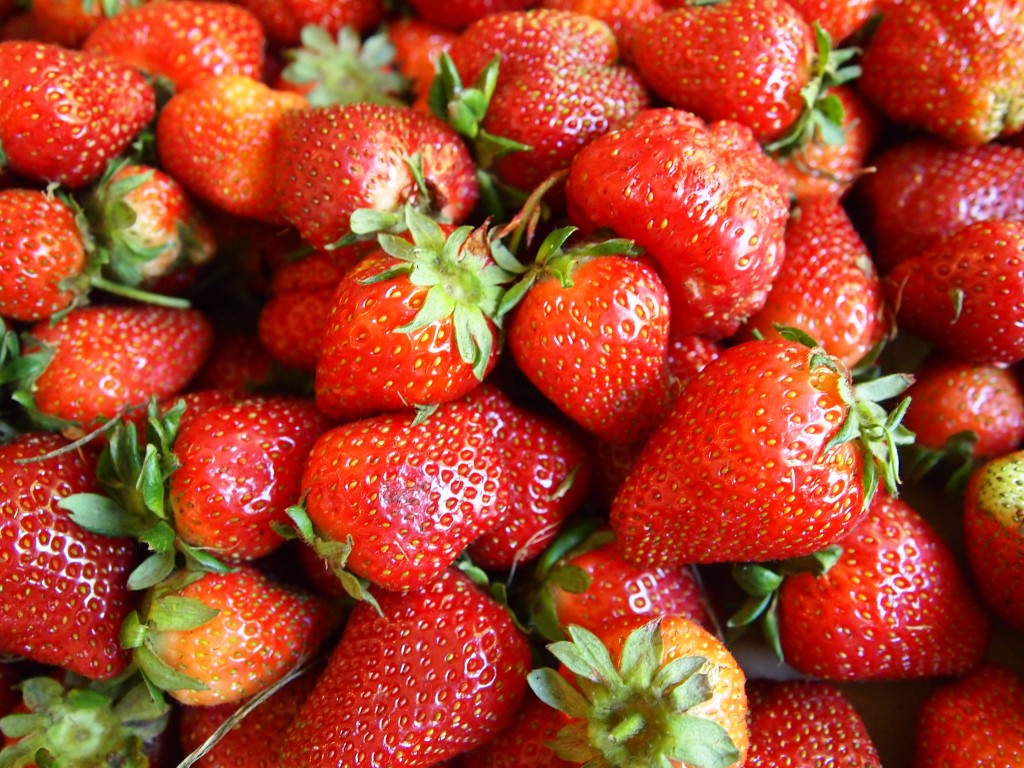
The Key to Successful and Sustainable New Year’s Resolutions
Photo Credit: Kat, via Flickr Creative Commons
“Those who have a ‘why’ to live by can live with any ‘how.’” –Victor Frankl, Man’s Search for Meaning
The new year is always a time to reflect on last year. We can notice our accomplishments and challenges, bring awareness to those areas in our lives in which we are doing well, and provide insight to the areas that we would like to improve. This reflection helps lead us to the changes we want to make to create a more positive, fulfilling and healthier life.
Eating healthier continues to be one of the most popular New Year’s resolutions year after year.
Eating healthier continues to be one of the most popular New Year’s resolutions year after year. People start their new year with a fresh perspective, motivated to eat healthier in order to lose weight, improve health and well-being, feel better and have more energy, and to make a positive impact on our environment and economy. Perhaps you are considering eating healthier and following a plant-based diet as your resolution this year or this has been a previous resolution that you haven’t maximized in the last year.
Research shows that finding the personal value and meaning behind your resolutions is the key to creating successful and sustainable changes. When we value something, it becomes an important personal priority. Finding value and meaning in our lifestyle is what keeps us committed even when it may be challenging, when we would rather go back to the comfortable, old patterns, or when we feel the pull and influence of others’ unhealthy choices. Meaning is what gives us the strength to endure and stay committed to our choices and ourselves.
Notice the values that have driven you in the past and be aware of what you most value now. There are a vast number of reasons and rewards for adhering to a plant-based approach, but it’s most important that the choice personally resonates for you.
Start by asking yourself a few of the following questions as a way to gauge the value and meaning behind your resolution:
- Why is following a low-fat, plant-based approach important to me?
- Do I want to eat healthier for health reasons, to prevent or reverse disease, or to lose weight?
- If weight loss is my goal, do I really want to lose weight or is it because I want to be healthier, have more energy, and feel better?
- How is eating a low-fat, whole food, plant-based approach going to make me feel?
Take some time to reflect on these questions. When establishing meaning, it is important to look at how it will make you feel and the impact it will make in your life. The motivation for feeling good is much more powerful and sustainable than making changes out of fear, anger or guilt.
Five Valuable Reasons
Here are five valuable reasons to place a whole food, plant-based approach at the top of your resolution list for 2015. This is just a glimpse of the abundance of evidence and rewards that come from adhering to a plant-based approach to eating.
1. Good for Your Health
Dr. Dean Ornish’s research demonstrates the many health benefits to following a very low-fat, vegetarian diet along with a comprehensive lifestyle approach. The dynamic effects of this type of lifestyle change have been shown to prevent and reverse the progression of significant chronic diseases, including:
A very low-fat, plant-based approach along with lifestyle changes also provides protective benefits, reduces chronic inflammation and lowers risk factors such as blood pressure and cholesterol.
2. Good for Weight Loss and Management
Dr. Ornish’s research also shows the positive impact on weight loss by adhering to a low-fat, vegetarian diet. An award-winning study published by Obesity Society also shows weight loss as a benefit of following a plant-based approach without emphasizing calorie restriction.
3. Good for Longevity
A study published in JAMA in 2013 showed that vegetarian diets were associated with lower mortality rates for all causes and reduction in disease-specific mortality. Dr. Dean Ornish’s research shows that following a plant-based diet with comprehensive lifestyle changes may increase the length of telomeres, the ends of chromosomes that control cell aging, therefore demonstrating the potential to reverse aging on a cellular level.
4. Good for Your Budget
A low-fat, plant-based approach is a cost-effective way to stay aligned with the common resolution of saving money in the new year. Plant foods such as beans, lentils and whole grains are among the cheapest foods you can buy. Produce is also less expensive than unhealthy packaged items. The saving shows up in the short term on your grocery bill and in the long term in diminished health care costs for you and your family. These lowered costs extend to significant health care cost savings for our country. This is just one of the ways that making this one positive choice for yourself can extend outward to helping others, our country, and perhaps the world.
5. Good for the Environment
Meat consumption plays an enormous impact on the environment. A report by the United Nations indicates the livestock sector is one of the most significant contributors to environmental problems, including climate change, air and water pollution, land degradation, and biodiversity loss. It estimates livestock accounts for 18% of all greenhouse gas emissions, which weighs in significantly more than transportation. One of the biggest ways to save the environment and reduce global warming is to shift to a plant-based diet. Producing just half a pound of meat for a hamburger releases as much greenhouse gas into the atmosphere as driving a 3,000-pound car nearly 10 miles. According to Al Gore’s Live Earth organization report, “If everyone went meatless for one day, the U.S. would save 100 billion gallons of water, enough to supply all the homes in New England for almost four months and 70 million gallons of gas, enough to fuel all the cars of Canada and Mexico combined with plenty to spare.”
What is your motivation to start eating a plant-based diet in 2015?








